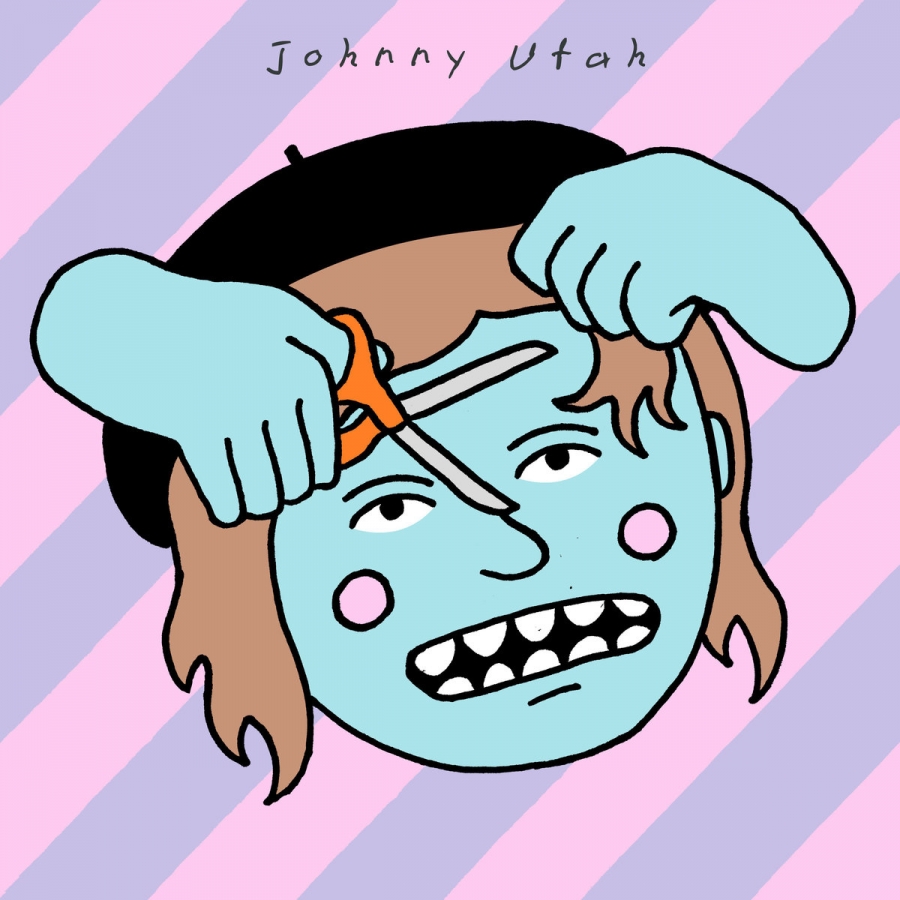Johnny Utah’s limited edition self-titled cassette is quintessential listening for fans of bedroom pop, earnest lyricism, and melodies that feel like the soundtrack to your favorite early aughts indie flick.
Available via Slovakian cassette label Z Tapes, the six-song EP opens with “Angst,” which unfolds with melodic licks of guitar and the distant trill of birds. The hushed yet cinematic intro gradually blossoms into a satisfyingly more pronounced and rhythmically memorable ballad that asks a timely question: “Is it time for the world to see?” Heartfelt yet far from coy, “Angst” feels genuine, nostalgic, and fervent. It’s a suitable preface to “Gentle Boy,” which begins with the definition of its namesake, setting the stage for an unabashed and tender anthem that pays homage to vulnerability and emotion, while resulting in a realistic portrait of masculinity. The song ends with a heartwarming voicemail message that gives a vivid glimpse into the would-be biography of man not afraid to give a shit or say, “I love you.” It’s a refreshing meditation on human closeness and self-actualization.
The lullaby-esque start of “Elliot’s Song” echoes the beginning of “Angst” in its earliest moments, before evolving into a catchy confessional about intimacy and an inability to let go of a romance. Reminiscent of the raw truth at the center of bygone LPs by Drug Rug and The Babies, the track transforms its narrator into a believable apologist. It’s difficult to listen to this song without seeing a bit of yourself in it. Rather than mere desperation, “Elliot’s Song” is a sincere proclamation, while “Her Bangs” is a brief yet swoon-worthy offering that hums with yearning. A perfect song to be listened to again and again due to its brevity, “Her Bangs” illustrates Johnny Utah’s lyrical precision and the longevity of being concise. Within the span of barely two minutes, listeners are captivated by the clarity of the track’s narrative and sentiments. “Nvrllyrlly” is an undeniably smooth, pop cut. A testament to the persistence of desire, the urgency of the song is amplified by repetition and the pulsating thumps of a drum machine.
Johnny Utah’s final track, the aptly titled “A Song to End It All,” begins like a trippy, psych-drenched, fever dream in slo-mo, before bursting into a tambourine-filled hymn of sorts. A seamless end to a gratifying cassette, “A Song to End It All” and all that precedes it are well worth listening to on repeat. Each track will feel just as riveting as it did the first time you heard it. – Dianca London
